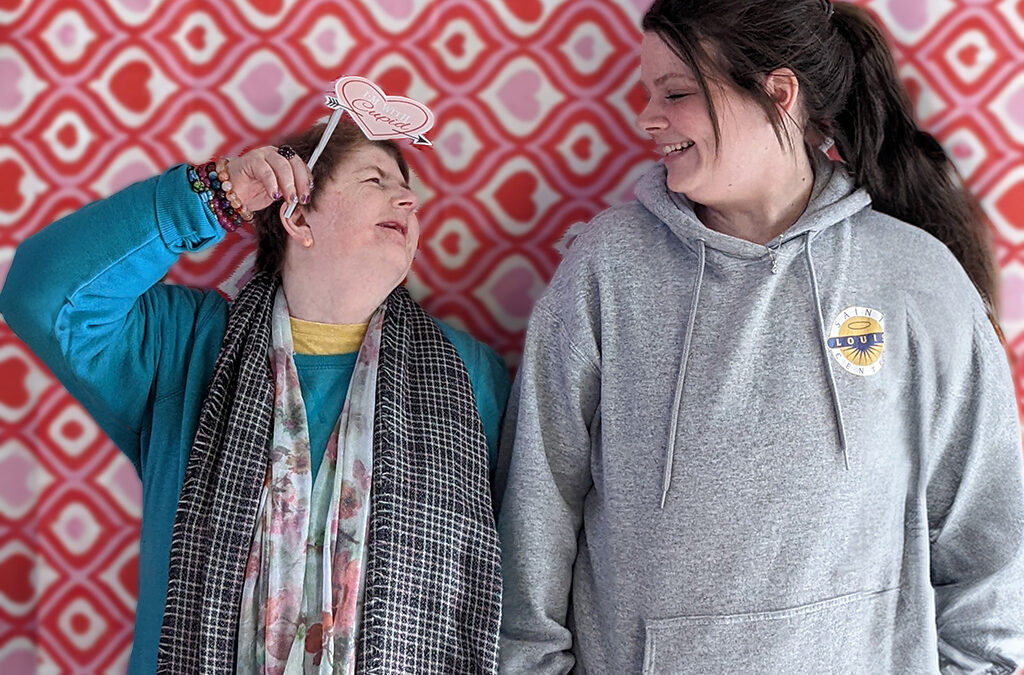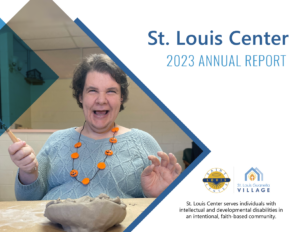With Faith, Love, and Competence
From the very beginning of the work of St. Louis Guanella in the late 1800s, he underscored the innate value of the human person. Today, around the globe in his Centers, including the St. Louis Center, this is still being taught to the staff and surrounding community. In a book used for training staff members, With Faith, Love, and Competence, it states, “The human being is a reality enveloped in mystery, not fathomed to his depths. In every person, there exists something more than we can recognize or surmise.” St. Louis Guanlla wrote,
“All people on earth are the image of the Most High. Let us examine him closely because I am certain that, recognizing him, we will put our attention on loving our neighbor with all our strength.”
The book continues to explain the treasure of each human person despite any difficulty, suffering, or poverty. The teachings in this book remain appropriate to this day as was evident in a recent address by the Pope.
Pope Francis Encourages a Culture of Inclusion
On Thursday, April 11th, Pope Francis received participants in the Plenary Assembly of the Pontifical Academy of Social Sciences. The assembly focused on the theme “Disability and the Human Condition: Changing the Social Determinants of Disability and Building a New Culture of Inclusion.”
The Words of Pope Francis
The Church’s care and concern for those with one or more disabilities concretely reflect the many encounters of Jesus with such persons, as described in the Gospels. In these accounts, we can find a number of timely points for our reflection.
1. Jesus enters into direct contact with those with disabilities, since, like every form of infirmity, disabilities must not be ignored or denied. Yet Jesus not only relates to disabled persons; he also changes the meaning of their experience. In fact, he showed a new approach to the condition of persons with disabilities, both in society and before God. In Jesus’ eyes, every human condition, including those marked by grave limitations, is an invitation to a unique relationship with God that enables people to flourish.
“Every human being has the right to live with dignity and to develop integrally… a dignity based not on circumstances but on the intrinsic worth of their being.”
2. The throwaway culture, in effect, has no borders. There are those who presume to be able to establish, on the basis of utilitarian and functional criteria, when a life has value and is worth being lived. Such a mentality can lead to grave violations of the rights of the most vulnerable, to serious injustices and situations of inequality, resulting for the most part from the mindset of profit, efficiency, and success.
3. In today’s throwaway culture, … [there is a] tendency to make individuals view their life as a burden both for themselves and for their loved ones. The spread of this mentality turns the throwaway culture into a culture of death. In the end, “persons are no longer seen as a paramount value to be cared for and respected, especially when they are poor and disabled, ‘not yet useful’ – like the unborn, or ‘no longer needed’ – like the elderly” (cf. Fratelli Tutti, 18).
4. Combating the throwaway culture calls for promoting the culture of inclusion – the two things go together – by forging and consolidating the bonds of belonging within society. The primary agents of such solidarity are those who, out of a sense of responsibility for the good of each individual, work for greater social justice and for the removal of the barriers that prevent many people from exercising their basic rights and freedoms.
5. What is needed, then, is the development of a culture of integral inclusion. The bonds of belonging become even stronger when persons with disabilities are not simply passive receivers, but take an active part in the life of society as agents of change. Subsidiarity and participation are the two pillars of effective inclusion. In this regard, we can appreciate the importance of associations and movements of disabled persons that work to promote their participation in society.
To read more …
The full text of Pope Francis’ address was published by Zenit on April 11, 2024. To read the full document visit: zenit.org
Read the entire issue of St. Louis Spirit here!





